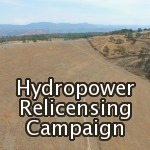Article from Stockton Record.
http://www.recordnet.com/opinion/20160528/guest-view-concerns-with-garamendi-bill
Guest View by John Herrick, South Delta Water Agency Joan Buchanan, Restore the Delta and Bill Jennings, California Sportfishing Protection Alliance
Posted May. 28, 2016 at 4:00 PM
As residents and long-time defenders of the Delta, we were disappointed by Rep. John Garamendi’s op-ed “No twin tunnels; But legislation would help temper many concerns.” (The Record, May 25)
There is a reason no members of Congress from Northern California have supported this bill and why members from Oregon and Washington also oppose it. We believe it is ultimately bad for the Delta. Though the bill, of course, has some good aspects, its purpose is to pump more water out of the Delta. Period.
Garamendi describes two parts to his bill.
• These bills authorize $1.3 billion for water infrastructure projects, including Delta levee repair, Sites Reservoir, recycling, conservation and aquifer replenishment.
Combining good ideas with bad ones does not improve the bad ideas. The good merely clouds the bad. Even the good provisions are not certain to occur. There is no guarantee the money will go to specific projects and more than $1.3B is needed for levee repairs and to ensure that critical levees meet 100- or 200-year standards.
• The bills require real-time scientific monitoring for water quality and the location of Delta smelt and listed salmon species in the Sacramento River and the Delta.
We know of no technology that will provide “real-time scientific monitoring” and allow flows to be adjusted on a minute-to-minute or day-to-day basis. The Delta is a living ecosystem that is impacted over months, years and decades by actions that occur in “real time.” Remember, Westlands Water District and Metropolitan Water District were busy in Washington D.C., in 2015 attempting to delist the Delta smelt in an attempt to lift Delta pumping restrictions.
Never mind that any recent pumping restrictions were to protect steelhead. The court-ordered protections for salmon, steelhead and smelt ensure these species do not go extinct and prevent water exports that will destroy water quality beyond repair for every other commercial, business, human, wildlife and recreational use.
The buzzwords used by exporters to support their actions to avoid the law are “science based.” These bills have nothing to do with science. They have everything to do with pumping more water out of the Delta. In 2009, Sen. Dianne Feinstein secured funding in the federal budget to have the National Academy of Sciences complete a study. The study concluded that we currently are pumping too much water out of the Delta. This was supported more recently by the Independent Science Panel’s rigorous analysis of the Biological Assessment completed for California WaterFix.
Garamendi also argues that his bill must be passed to prevent a worse bill by Rep. David Valadao from being passed. Our response is simple: Two wrongs don’t make a right. We decline to support a bill that is bad for the Delta because another may be worse. Remember, the White House has issued a veto threat of the Valadao drought bill if it reached his desk. So there is no need for compromise legislation from the Delta.
All Delta fisheries are in serious decline due to 30 years of overpumping compounded by five straight years of drought. The public should note the pumps were not shut off one day during these last five years. Pumping was slowed down only 3 percent of the time to protect fisheries in 2014 and 2015. Low pumping levels were set in place because the estuary was dangerously close to becoming salted up due to lack of adequate outflows into
San Francisco Bay, threatening water quality for Metropolitan Water District of Southern California. Fishery management agencies are enforcing pumping restrictions more closely this year because they are on the verge of rendering species extinct, and that is not allowed under federal law.
While Garamendi claims his proposal would enforce the Endangered Species Act, a review by the Pacific Fisheries Management Council found that the Feinstein/Garamendi bills are not scientific and protective of salmon.
As we enter the fifth year of drought, it is important to know that Delta water quality protections were rolled back 15 times over the past two years. Water quality standards for the Delta already are violated on a regular and continuous basis. Even though the reservoirs of Northern California have filled with El Niño rains, Delta inflow, outflow and interior Delta standards protecting Delta agriculture, fisheries and communities are being violated because not enough water is moving naturally through the system. These standards also were routinely ignored or illegally weakened the last three years. Increasing water exports from the Delta will just exacerbate this situation.
When the export projects were first conceived and then authorized, numerous state and federal laws mandated how they would operate. Those statutes require that in order for any water to be exported, areas of origin and the Delta must first be protected. The law specifically directs that not only do area of origin users get first grab at the water, but also that no water needed for in-Delta salinity control or for in-Delta supply can be exported. To the contrary, exporters seek to maximize the amounts exported but don’t want ensure the Delta meets minimum water quality standards during drought. All the while, water exporters argue Delta diverters should not be diverting at all. These bills seek to require regulators and management agencies to “maximize exports,” instead of directing them to obey the laws and protect Delta water users.
This is a bad bill for Northern California water interests and for the people Garamendi represents. We believe Garamendi does really care about the Delta. The best way to act on that care is to author a bill that requires The State Water Resources Control Board and the United States Environmental Protection Agency to update the Delta Water Quality Control Plan in a timely manner. They are 20 years behind with updating standards, and litigation now is moving forward from the Bay-Delta community to get the job done.









